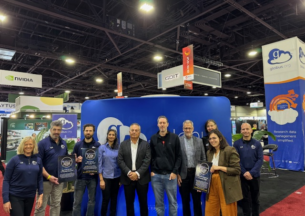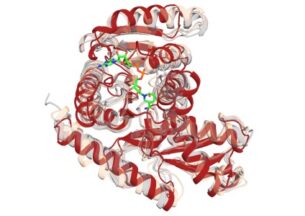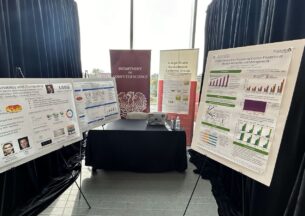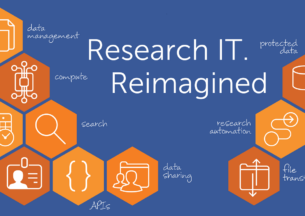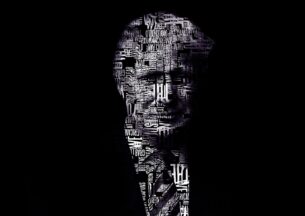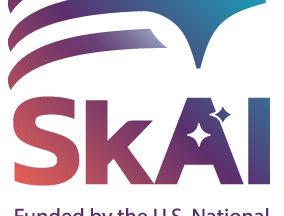DOE Awards Fred Chong and his National Research Team $7.5M to Develop a SMART Software Stack to Control Quantum Computer Noise

University of Chicago Computer Science Seymour Goodman Professor Fred Chong is part of a national team building software to manage quantum noise, an increasingly relevant problem due to the rapid development of quantum computing technologies. The team was among ten that received awards from the Department of Energy (DOE) Office of Science. The team, led by quantum information scientist Gregory Quiroz at the Johns Hopkins Applied Physics Laboratory (APL), plans to develop modular quantum software stack components to manage noise in the increasingly complex quantum computers planned for the near future.
In an earlier DOE award, Quiroz and Chong led a project called Tough Errors Are no Match (TEAM), delivering successful error management methods for quantum computers through the development of compilation tools for current-generation quantum computers consisting of tens to hundreds of qubits. This project culminated in over 50 papers and several open-source software tools.
“The TEAM project developed several key noise management tools,” said Chong. “It ranged from optimal control of the microwave signals that control quantum devices to zero noise extrapolation to improve the accuracy of quantum applications.”
For their new DOE award, the team plans on building upon the success of their first project. A primary challenge in quantum computing is noise. Quantum computer hardware is composed of basic atomic units known as qubits, which rely on engineered quantum particles like photons and electrons, or systems that mimic quantum particles, such as superconducting circuits. These quantum processors use the particles to execute complex calculations. However, random molecular movements within and around the qubits generate noise, disrupting their ability to store information and leading to errors, which makes current quantum machines unreliable and unpredictable.
 Chong, Quiroz, and the rest of the team — William Zeng and Nathan Shammah, Unitary Fund; Anders Petersson, Lawrence Livermore National Laboratory; Pranav Gokhale, Infleqtion; and Gokul Subramanian Ravi, University of Michigan — plan to design modular quantum software stack components to manage noise in future quantum computers. This new project is called SMART Stack: Scalable, Modular, cross-platform Adaptable, dynamically Reconfigurable, and error-Targeted approaches to quantum stack design.
Chong, Quiroz, and the rest of the team — William Zeng and Nathan Shammah, Unitary Fund; Anders Petersson, Lawrence Livermore National Laboratory; Pranav Gokhale, Infleqtion; and Gokul Subramanian Ravi, University of Michigan — plan to design modular quantum software stack components to manage noise in future quantum computers. This new project is called SMART Stack: Scalable, Modular, cross-platform Adaptable, dynamically Reconfigurable, and error-Targeted approaches to quantum stack design.
“SMART will extend and integrate the techniques developed previously in TEAM, creating a full software stack that will deliver more accurate quantum computation to users and applications,” Chong elaborates.
Current quantum software stacks have made progress in managing errors in existing hardware through various methods, but they generally lack the flexibility needed to fully leverage rapidly evolving technology. The SMART Stack team aims to develop software infrastructure to address this gap.
SMART Stack plans to build on these advancements by preparing for larger, next-generation quantum processors anticipated over the next 10 to 20 years. The engineering team’s strategy involves closely integrating the software stack of operating and control systems with hardware to strengthen error resistance and enhance algorithm performance in emerging systems, including future heterogeneous models that combine quantum computers with advanced classical computers.
This ambitious project is part of Chong’s broader quantum computing research within his EPiQC research group and the Chicago Quantum Exchange.



